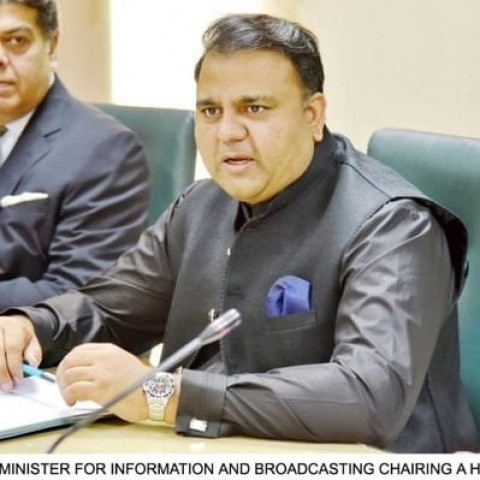Science minister marks Eidul Azha on July 31
Fawad quotes his ministry’s calendar for this forecast

Fawad quotes his ministry’s calendar for this forecast. PHOTO: FILE
“As per [the] calendar of [the] Ministry of Science and Technology, Eidul Adha shall be celebrated on Friday, 31st [of] July 2020. On 21st [of] July ZeAlHaj moon shall be visible over Karachi and it’s peripheral areas,” Fawad Chaudhry said in a tweet.
As per calender of @MinistryofST Eid-Al-Adha shall be celebrated on Fiday,31st July 2020. On 21st July ZeAlHaj moon shall be visible over Karachi and it’s peripheral areas, “Ruet”App may also be used to ascertain exact location of the moon. #Eid
— Ch Fawad Hussain (@fawadchaudhry) June 15, 2020
He also said that the ‘Ruet’ App may also be used to ascertain the exact location of the moon. Last year, the government had developed an app and a calendar dedicated to moon-sighting that show main Islamic dates and months for the next five years based on scientific evidence.
Just days before the Ruet-e-Hilal Committee’s moon-sighting in May, Fawad had announced that Eid would fall on May 24. “It takes a little more than 29 days for the moon to complete its orbit around the earth. The height of the moon should be 6.5 degrees and there should be a difference of around 38 minutes between sunset and moonrise, whereas the minimum angle of view of the moon should be 9 degrees,” he had said while addressing a press conference.
Such a prediction had proved true as the nation celebrated Eidul Fitr on the day stated by the minister after the committee’s official announcement.
Preposterous to detach science from religion: Fawad Chaudhry
Meanwhile, Fawad said that locally manufactured coronavirus diagnostic kits would have 90 per cent accuracy that is about 20 per cent more than imported testing equipment.
In an interview with a private news outlet, he said the country has developed indigenous Covid-19 diagnostic kits that have been approved by the Drug Regulatory Authority of Pakistan (DRAP). “Locally manufactured diagnostic kits would considerably bring down the cost of coronavirus tests in the country,” Fawad said.
The minister also voiced hope that domestic ventilators would also be ready within the next few weeks as clinical trials of four machines have already entered their final phase. “Once these trials are over, the commercial entities would be asked to start manufacturing the ventilators,” he added.
On June 12, DRAP approved the indigenous development of diagnostic kits for the detection of the coronavirus developed by the National University of Science and Technology.
The news was shared on Twitter by the minister for science, where he congratulated the developing team.
“You people have made us proud... this will bring significant cost reduction of Covid-19 tests and will also save huge import bill,” he wrote on his official handle. The testing kits are being developed in collaboration with the Wuhan Institute of Virology China, the DZIF Germany, the Columbia University USA and Armed Forces Institute of Pathology (AFIP) Rawalpindi.



















COMMENTS
Comments are moderated and generally will be posted if they are on-topic and not abusive.
For more information, please see our Comments FAQ